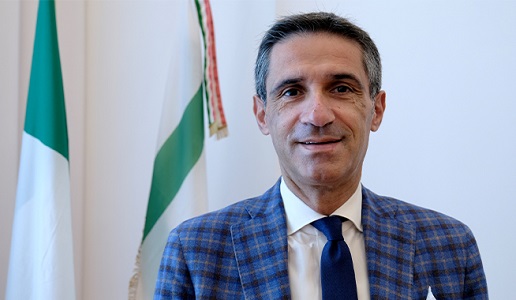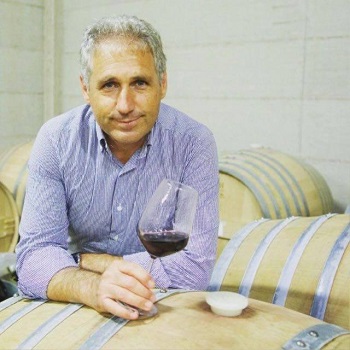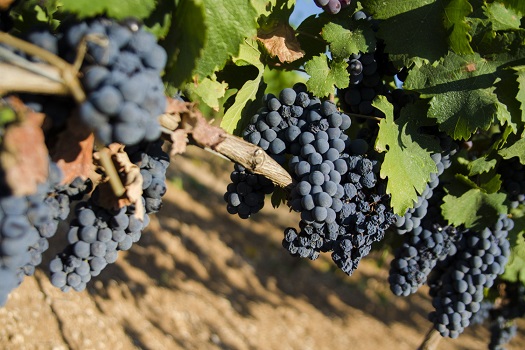The Apulian situation of Primitivo di Manduria (2)

After seeing the position of Novella Pastorelli, the President of the Consortium for the Protection of Primitivo di Manduria, we interview today Donato Pentassuglia, Regional Agriculture Councillor, and Michele Schifone oenologist and owner of the Cicella masseria winery.
We asked them the same questions, the ones that Pastorelli answered yesterday. Let's see their answers in parallel.
DoctorWine: Primitivo di Manduria is a grape variety that represents Apulian, Italian and international value. It is probably the most iconic in Apulia, what are the reasons for its success in Italy and abroad and what distinguishes it from other valuable native varieties?
Donato Pentassuglia Regional Councillor for Agriculture in Apulia: The success has been determined by the product with its goodness, authenticity and also health value. Add to this the territorial typification that has historically characterized its environment in an eco-sustainable balance. All this has allowed Primitivo di Manduria to become a true excellence in the world.
 Michele Schifone oenologist and owner of masseria Cicella: Its notoriety stems from quite unique organoleptic characteristics that have favorably impressed consumers all over the world, particularly its full-bodiedness (extracts) balanced with alcohol, "soft" tannins, with clear hints of ripe fruit. Clearly said characteristics are enhanced with the right balance of terroir and cultivation system.
Michele Schifone oenologist and owner of masseria Cicella: Its notoriety stems from quite unique organoleptic characteristics that have favorably impressed consumers all over the world, particularly its full-bodiedness (extracts) balanced with alcohol, "soft" tannins, with clear hints of ripe fruit. Clearly said characteristics are enhanced with the right balance of terroir and cultivation system.
Producers of "dry" Manduria are deciding to apply for recognition as a DOCG, thus joining it with "natural sweet," already a DOCG. However, there seems to be no contemporary demand for recognition of a spillover DOC, leaving this function to the Primitivo del Salento igt, which affects a much larger quantity of producers than Manduria. A consideration of yours in this regard?
DP. The councillor must help the processes of protection and enhancement within the prescribed standards. It is up to production to determine marketing and market choices with technical and sustainability assessments.
MS. A DOCG is the ultimate recognition of a wine's quality. Certainly it would be an important step, I believe that said step cannot take place without prior zoning that safeguards those characteristics listed above. In other words, each bottle bearing such recognition must preserve those unique characteristics that cannot be obtained in the entire territory of the current DOC.
Stock volumes and lowering costs were until recently the main concerns of producers in the area, the arrival of blight has turned everything upside down. The 2023 vintage hangs in the balance, will the aforementioned inventories save the wineries' budgets or are there interventions to support producers?
DP. The issue of inventories is there and is under the lens as more wine is produced than is consumed and bottled. Still very little compared to production. Downy mildew has caused a lot of damage to this year's production and we hope that damage to vines will be limited for upcoming vintages. Interventions are being discussed despite the bureaucracy and little money available. But the Apulia Region has asked for attention to both interventions to the minister and to Brussels.
 MS. The current vintage is certainly the most difficult in the last 30 years because of unfavorable weather conditions. Certainly the cost of vineyard management has increased, plus we will have a high percentage less production, which added to last year's production could wipe out an entire year's production. This may rebalance the market.
MS. The current vintage is certainly the most difficult in the last 30 years because of unfavorable weather conditions. Certainly the cost of vineyard management has increased, plus we will have a high percentage less production, which added to last year's production could wipe out an entire year's production. This may rebalance the market.
Does the region's resolution on reducing grape yields for PGI support producers?
DP. I think it is a very important and shared measure that is being worked on and is being taken as a reference by other regions. Added to this is the issue of controls that we are focusing on and developing.
MS. I think the proposal of the current Assessore is very interesting and there is a global vision of the whole wine sector. Specifically, the Primitivo di Manduria Dop suffers from a sort of competition with the Igp Primitivo, just think that the Dop has a yield of 90 quintals per hectare while the Igp Puglia of 220. With such a yield we certainly get wines that do not reflect those typical characteristics already mentioned, damaging the good name of Primitivo in world markets. The proposal to lower and standardize the yields for all Igp (Puglia, Salento and Tarantino) to 120 quintals per hectare is a good compromise to obtain wines that enhance the organoleptic characteristics that have made Primitivo famous in the world. My personal wish is that this draft becomes applicable immediately.

 Italiano
Italiano







